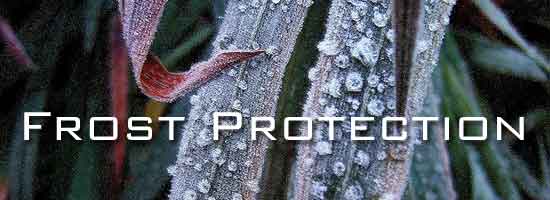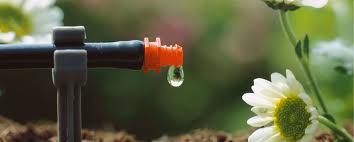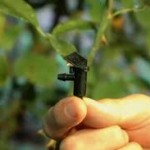Posts Tagged Northern Calfornia
Protecting Your Landscape From Frost Bite
The temperatures in Northern California are beginning to drop which means winter will be before us, before we know it. Night time temperatures that get down to freezing and below will damage some trees and plants if you don’t take precautions against frost. These low temperatures can begin late November and continue through February and beyond.
DK Landscaping helps you prepare your landscape and provides tips to protect your delicate plants from frost bite.

WINTERIZE
Fall is prime time to clean up your landscaping and remove the dead landscaping before it gets too cold. Removing dead plants can also stop the growth and spread of fungi that could infect your plants’ new growth in the spring.
PLANT
Planting trees and shrubs in the fall is a an optimal time before the first frost arrives and best time to take advantage on some great end of the season deals. Planting in the fall gives roots plenty of time to become established before the next growing season begins. Not only will you get to enjoy the changing leaves for a brief time, you will also put less stress on your young trees because of the cooler weather and rain conditions fall offers.
MULCH
Mulching can be a great first step in preparing for winter’s frost. If you are unfamiliar with mulching, check out our previous blog post called Mulch About Fall. There are many benefits to mulching your lawn and plants, especially before winter. Mulching in the fall can help protect your plant’s roots as well as help them retain moisture during the cold, dry winter.
Just a few preparations for winter can guarantee that your landscaping will come back fresher than ever in the spring.
For more information on the care of your landscape, please contact David or Kathy Lee from DK Landscaping (707) 280-3632.
The Art of Irrigation

One of the challenges for a gardener is managing the proper use of water. The lack of water can be damaging, or deadly, to anything growing outside. DK Landscaping shares the art of irrigation and will help you prepare your garden for it.
Benefits of Drip Irrigation
By using drip irrigation, your garden will use less water, will require less maintenance, and help discourage less weeds and pests. You will be giving them the moisture they need, where they need it: at their root zone.
It will save you up to 90% compared to watering with a hose. It saves you time having your drip system on a timer. You control your irrigation timer and adjust it for seasonal changes (for instance, August heat in Northern California consumes the most water). Together with mulch creates an organic weed control without the use of harsh and unhealthy chemicals. Watering only the roots of your plants with drip irrigation also cuts down on water-borne pests and fungal diseases that spread by water movement.

With a timer, you can control how much water your plants receive by setting up your drip system with different size emitters, which are the system’s delivery mechanism. You can use a small emitter, such as one that delivers 1/2 gallon of water per hour, at the base of small plants, such as herbs; for larger plants, such as trees, you can provide more than one emitter that delivers 3 gallons of water per hour, or more.
DK Landscaping also recommends that all valves feeding the drip system should have:
Large Filter: A small filter or no filter will result in debris clogging the system.
Pressure Reducer: Absence of it will result in emitters being blown off the main feed line. Drip systems are designed to work under low pressure (nominally between 25 PSI to 35 PSI) while normal pressure on the water main line is nominally 70 PSI.
Pressure Compensated Emitters: Pressure compensating drip emitters (PC Emitters) deliver a consistent output of water, even with increase changes in elevation or pressure due to long drip runs. PC Emitters are best used in landscapes and gardens that have drops in elevation that would cause an increase in pressure.
Emitter Hole Punch: Oval or wrongs size holes will result in leaks.
For more information and a free consultation on your irrigation system, please contact Kathy Lee at DK Landscaping. Kathy is our QWEL (Qualified Water Efficient Landscaper) Certified Irrigation Expert. We are also a certified WaterSense Partner. QWEL and WaterSense are certified by the EPA.





